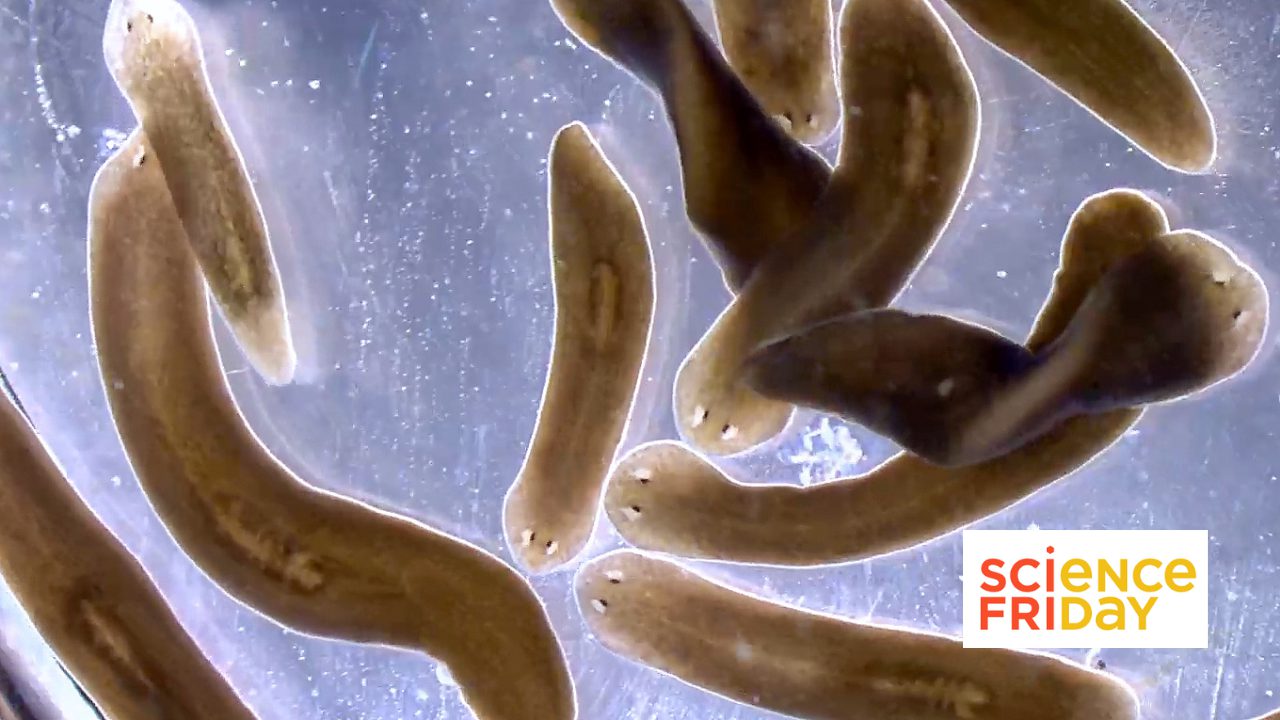In The News

07 January 2026
Investigator Kamena Kostova, named ‘Cell Scientist to Watch’
From the Journal of Cell Science, Investigator Kamena Kostova named a 'Cell Scientist to Watch'
Read Article
News
Stowers Research Conferences bring together leading scientists in the field including mentors and their trainees in a format designed to facilitate discussion and exchange of ideas
The Stowers Institute for Medical Research was filled with scientific enthusiasm last week, October 11 to 13, 2023, as the biannual Stowers Research Conferences (SRC) brought together renowned scientists, investigators, and their trainees for an immersive gathering centered around "Stem Cells, Tissue Plasticity, and Regenerative Biology."
Organized by Stowers Institute President and Chief Scientific Officer, Alejandro Sánchez Alvarado, Ph.D., and Stowers Investigators Tatjana Piotrowski, Ph.D., and Linheng Li, Ph.D., the conference was an exceptional platform for fostering creativity and collaboration in the field of regenerative and stem cell biology.
More than 100 attendees, including 20 speakers consisting of Principal Investigators and their trainees, attended the three-day event.
"This meeting brings together investigators who work on a whole variety of different kinds of stem cells, and different approaches to regeneration,” explained Andrew Kelton Groves, Ph.D., Professor and Vivian L. Smith Endowed Chair in Neuroscience at Baylor College of Medicine and one of this year’s invited speakers. “I think that's really important. When understanding the field of stem cell biology and regenerative medicine, you need multiple approaches from investigators using different systems.”
Stowers Research Conferences have earned a reputation as innovative, intimate, events that inspire creative thought and collaboration for both established and early career scientists in biology.

“I think one of the benefits that's most important for trainees is it's relatively small size and intimate setting,” Groves said. “Often at big meetings, trainees don't get the opportunity to network, either with other trainees or with more senior people in the field. And having this small meeting offered plenty of opportunities for interaction.”
SRC distinguishes itself by providing a chance for trainees to share the stage with their advisor and present in tandem, offering a fresh perspective and an exciting twist to the usual conference format.
“I've never seen that happen. So, this is definitely a unique opportunity,” explained Inshwar Hosamani, a graduate student from Baylor College of Medicine, who presented with Groves.
“That’s truly the most special part of this conference for me,” Groves added. “And if I'm organizing another meeting in the future, this is something that I hope to do.”
Sara Wickström, Ph.D., of the Max Planck Institute for Molecular Biomedicine and the University of Helsinki also presented at the conference, travelling from Germany.
“I’ve loved being here at Stowers. I’ve heard a lot about it. And it’s been so great to see the different model organisms. We've had a different organism for every talk. So, the breadth of biology we’re discussing is truly impressive,” Wickström said.
She also expanded on the opportunity and experience presenting with her trainee, Clémentine Villeneuve, Ph.D., a postdoctoral researcher at Max Planck Institute.
“It’s so unique to see two different personalities giving a talk around the same topic. As a PI, I can give a broader overview, and then the trainee kind of digs deep into a topic,” Wickström said. “We hear a lot of talks all the time. So, it's nice to have something a little bit different and I’ve been really impressed with the trainee talks!”
“I think one of the great benefits of this event is it’s a small conference so it's very intimate. We can really have time talk to people and share ideas no matter if you’re a student or a PI,” Villeneuve shared.
The next Stowers Research Conference on RNA Regulation is scheduled for April 17-19, 2024. Learn more about SRC here.
In The News

07 January 2026
From the Journal of Cell Science, Investigator Kamena Kostova named a 'Cell Scientist to Watch'
Read Article
#Stowers25: Celebrating 25 Years
06 January 2026
Alejandro Sánchez Alvarado, Ph.D., reflects on a year of discovery, gratitude, and the community that helps support our mission.
Read Article
In The News

01 January 2026
From Science Friday, President and CSO Alejandro Sánchez Alvarado talks about the science of regeneration and the biology lessons we can carry into the new year.
Read Article
